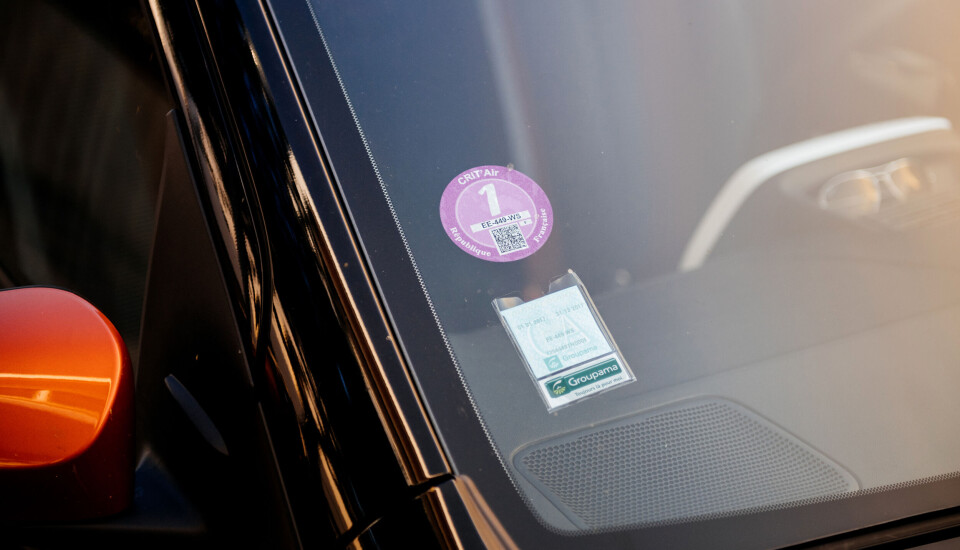-
White storks make strong return in France via nest ‘platforms’ and clipped wings
The Ligue pour la Protection des Oiseaux shares the conservation challenges in saving these birds from extinction
-
Hosting scheme in south-west France lets newcomers sample lifestyle
Households in nine Dordogne communes volunteer under Mes Nouveaux Voisins scheme
-
French boulangeries demand right for staff to work on May 1 so they can open
Artisan bakery owners can work but employees cannot, while certain industrial bakeries are allowed to remain open with workers
Confusion over low-emission driving zones in France
The majority of people in France still feel unsure about how low-emission zones work, as they continue to be rolled out nationwide

Less than a third of people in France say they understand how low-emission driving zones work, despite the fact that the rules are set to gradually exclude millions of vehicles from affected areas.
More than half (57%) said they had heard of low-emission zones (zones à faibles émissions (ZFE)), but only 28% said that they really know what they are, found the study from OpinionWay for hire car company Enterprise*.
ZFEs are low-emission zones in urban centres, from which [the most] polluting cars will gradually be phased out. Fines will be levied on drivers who enter the zone in a non-conforming car. The first zones began to be introduced in 2015.
Crit’Air stickers, showing how polluting a car is, are required in more and more French cities.
Read more: A guide to Crit'Air stickers in France
The poll found that 68% of daily car users say they do not feel clear about the rules for ZFEs, rising to 78% among those who do not have a ZFE close to them.
Despite this, the majority (73%) say that they understand that the zones help to reduce the number of vehicles on the road, and 67% say that they contribute to a “less polluted urban area”.
Almost a quarter (23%) said that they would avoid driving in ZFEs, while 18% said they would use alternative means of transport, and just 13% said that they wanted to buy a vehicle that would conform to ZFE rules.
Almost two thirds (64%) of drivers affected by ZFEs said that renting a car from time to time could be an alternative to using their own, normal vehicle.
The study suggested that the lack of fines levied on those who break ZFE rules (there are no fines for the moment, but these will be introduced in time) could be contributing to the lack of perceived awareness of the rules.
Only 55% of regular drivers said they were aware that fines would be levied for breaches of ZFE rules, and only 7% knew that the amount could be as much as €450.
The Greater Paris ZFE had been set to introduce fines for breaches of the rules at the end of 2021, but this has now been postponed.
However, the introduction of fines via video surveillance, which will link vehicle licence plates with Crit'Air sticker levels (which show how polluting a vehicle is), will make it possible to automatically punish offenders.
Vehicle use in France
The study also showed how important cars are to people in France.
Of the 90% who own a vehicle, 79% said that they use it several times a week. In Ile-de-France, this drops to 60%, versus 83% across the rest of the country.
As many as 91% of residents in rural areas (villages or towns with fewer than 20,000 residents) say they use their vehicles every day. This drops to 56% in Paris and its surrounding areas.
The study also found that traditional thermal engines are still being used by most people on a daily basis.
In a statement, Enterprise said: “42% of daily drivers use diesel and 36% use petrol, many more than the minority of motorists who have chosen to drive a ‘clean vehicle’ (hybrid and electric vehicles), which together account for only 7% of drivers.”
Diesel cars are used more in the provinces (46%) than in the Ile-de-France area (25%). Since the beginning of the year in France, electric cars have accounted for 11.9% of sales, and hybrids 28.4%, a strong increase compared to last year.
However, these vehicles still remain in the minority.
This may change from next year, as France is set to offer loans of up to €30,000 to people who live and work in certain low-emission zones from next January.
*The study was conducted online on March 9 and 10 2022, on a sample of 1,073 people, representative of the French population aged 18 and over.
Related articles
Air pollution: More car bans coming in urban France
France ramps up local air pollution restrictions
France to offer €30,000 loans to help buy hybrid or electric vehicles
























